![]() — หน้าแรก — เกาะติดข่าว
— หน้าแรก — เกาะติดข่าว
ข่าวเศรษฐกิจและธุรกิจประจำสัปดาห์
-
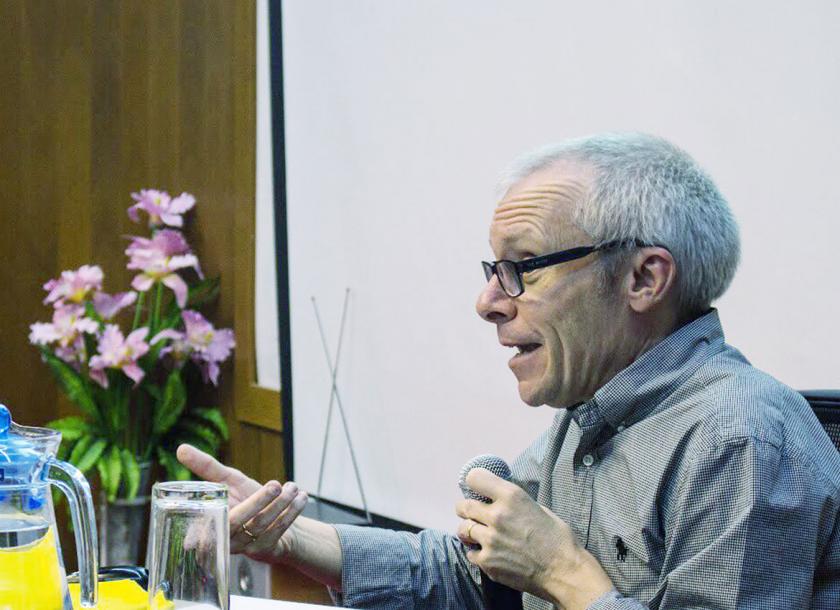
Myanmar is advised to learn from Sri Lanka’s experience on loans for Hambantota Port when mulling Kyaukphyu SEZ (Mr. Sean Turnell, Economic Advisor)
A senior civil servant has branded the debt concerns raised by Sean Turnell regarding the proposed deep-sea port in Kyaukphyu “baseless”, while the economist insisted that Myanmar should not need to borrow anything for the SEZ project Sean Turnell, economic adviser to State Counsellor Daw Aung San Suu Kyi, commented during a recent seminar held in Singapore that the US$7.5 billion estimated price tag for the Kyaukphyu deep-sea port “crazy” and “absurd”. “That’s way, way, way beyond what you would need for something like that, and this is something the government has paid attention to.” The precedent set by the $1 billion Hambantota port in Sri Lanka, where the government in Colombo borrowed heavily to construct the port, but couldn’t repay the loans and had to give China a 99-year lease for debt relief, is “the example that stands out, that has been really taken notice of in Myanmar,” according to the adviser. To raise sufficient capital for the Kyaukpyu port, the government “will have to borrow from the Export-Import Bank of China about $2 billion to $3 billion,” he went on. “So in other words what’s on the table here is exactly what was on the table in Sri Lanka.” -
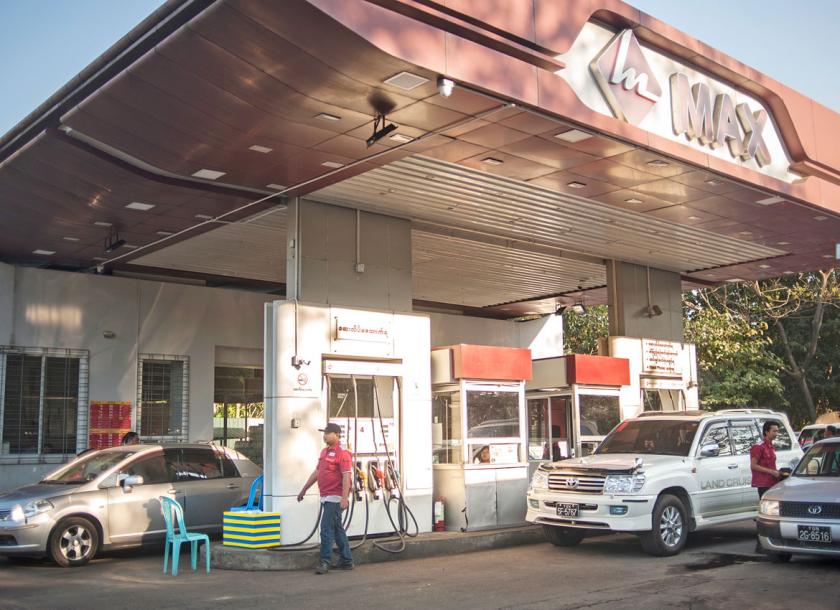
Discussions on deal between Max Energy Company and Shell Brands International are underway to operate petrol stations under the Shell brand
A July 2017 deal between Max Energy Company and Shell Brands International to open petrol stations under the Shell brand in Myanmar is still being discussed. The deal involves Max Energy owning and operating petrol stations under the Shell brand. It will also see Shell over the next three years expand beyond oil and gas exploration to retail and distribution of its fuels and lubricants in Myanmar. Meanwhile, Max Energy, which currently imports petrol to supply its filling stations across the country, will have all its fuel needs supplied by Shell International Eastern Trading Company. That will help it ensure security of supply and quality as well as reduce the costs associated with importing petrol, such as logistics and storage. Under the deal, Max Energy’s filling stations in Myanmar will be rebranded under Shell. Consumers can then buy Shell petrol, including Shell V-Power, which is similar to race fuel used by Scuderia Ferrari during the 2017 Formula One World Championship. -
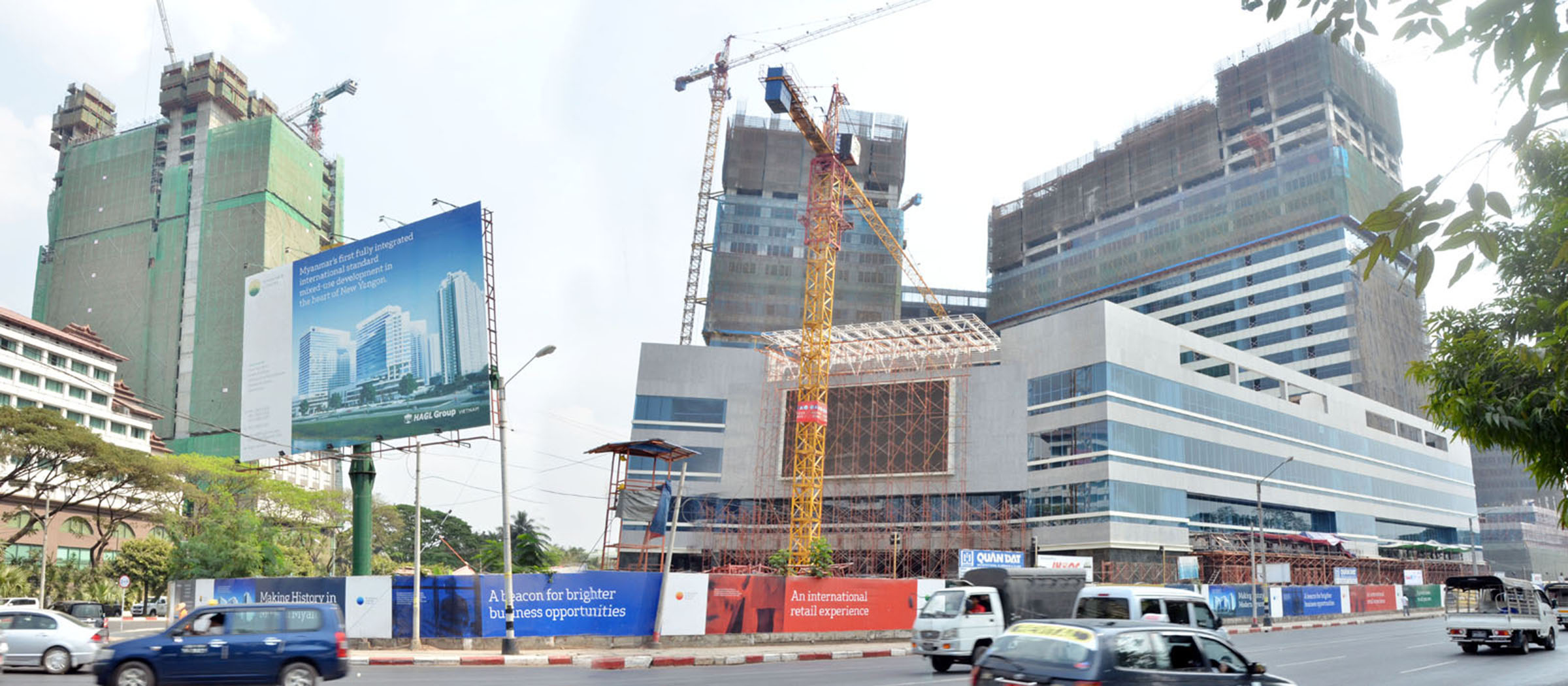
The new Yangon city project is expected to increase foreign direct investment despite some criticism over the regional government’s involvement in commercial activities
Despite some criticism over the regional government’s involvement in commercial activities, the new Yangon city project is expected to attract new investments from international players over the next few years, according to Phyo Min Thein, Yangon region chief minister. He said the government would speed up the development of Yangon new city, as it would be complementary to rapid growth of the existing commercial hub. “This project will create two million jobs, support local businesses and attract foreign companies. It will also see the development of world-class sustainable and reliable infrastructure and include integrated, affordable living for all segments of the community,” he said. Building a strong industrial base would create jobs that will ensure trickle-down benefits for other sectors and benefit the country and its people over time, he said. According to Phyo Min Thein, the regional government has proposed a site area of 88,525 rai (14,164 hectares) to the west of Yangon river for the new city development. He said a new special economic zone and deepsea port would also be implemented on the proposed site area of 126,464 rai (20,234 hectares) to be aligned with the project. -
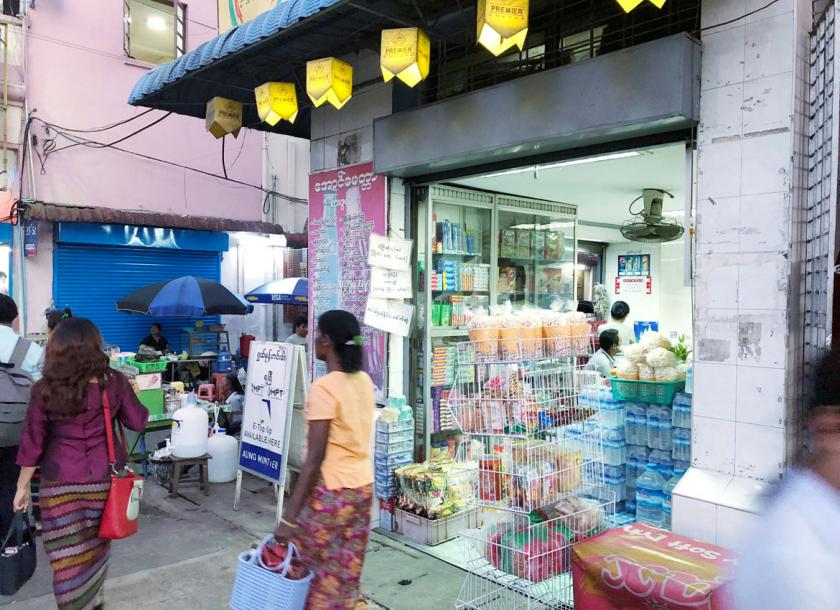
Government will provide more support to local SMEs in gaining access to technology to produce value add products
The government will provide more support to local small and medium enterprises (SMEs) which lack the technological knowhow enabling them to add value to finished goods, as this places them at a disadvantage to international peers and results in missed job opportunities for local residents. “In Rakhine State, for example, bamboo is cut down and directly imported to India. Most crops are exported raw. No value is added, which results in lower margins for cultivators and fewer jobs for the people,” said Daw Aye Aye Win, Director General of the Directorate of Industrial Supervision and Inspection (DISI). DISI falls under the remit of the Ministry of Industry and is responsible for helping SMEs gain access to technology, market access and financial support. DISI also conducts safety inspections at industrial workplaces. -
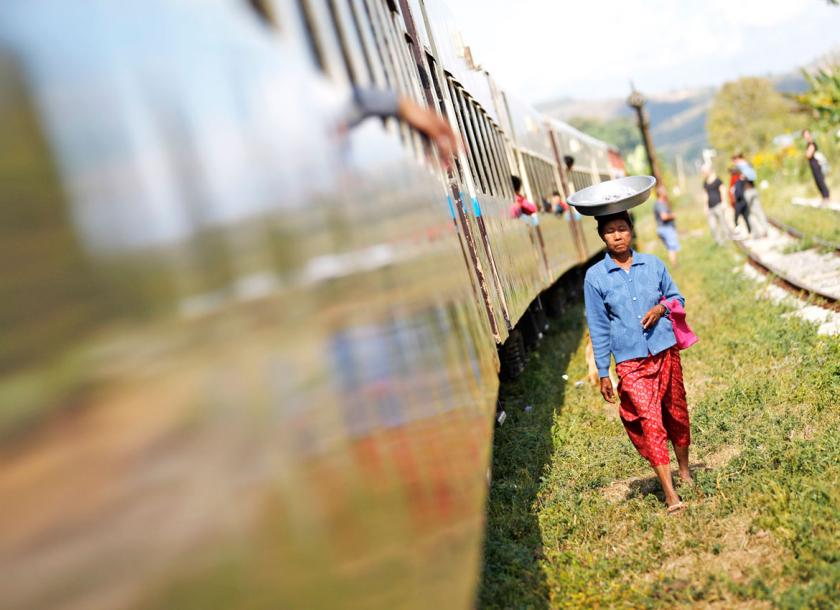
China has proposed the new infrastructure projects list which will be implemented along the China- Myanmar economic corridor
China has proposed a list of infrastructure projects to be implemented along the China-Myanmar economic corridor. The projects are expected to meet basic infrastructure needs in Myanmar as well as enhance China’s strategic footprint within the country. Last week, a Chinese delegation led by Yang Haodong, Party Secretary of the Lincang Municipal Committee, presented the proposal to officials from the Directorate of Investment and Company Administration (DICA) and Union of Myanmar Federation of Chambers of Commerce and Industry (UMFCCI). The list of projects includes construction of Kwanlon Bridge and a highway and railroad connecting Chinshwehaw and Lashio in Shan State. The Chinese also proposed approving Chinshwehaw as an international border gate and construction of a Special Economic Zone (SEZ) in the town as part of efforts to boost trade and tourism between China and Myanmar. Cross border agriculture cooperation between the two countries was also discussed. -
District auditor will check the Yangon regional government’s investments such as City Bank, public transportation services and other businesses to include the result in the annual report for 2018
District auditor told the regional Parliament on June 4 that District Audit Office will audit Yangon Regional Government’s investments such as City Bank, public transportation services and other businesses and will included the result in annual report for 2018. Daw Sandar Min, Member of Parliament submitted a proposal to the Regional Parliament urging the district auditor office to audit the regional government’s investments: K 64 billion in City Bank, K70 billion in Public Bus Company and K7.748 billion and to include the result in annual report. The regional Parliament approved the proposal without any objection. Daw Khin Than Hla promised the Parliament that her office would hire an outside auditor to audit the investments of the regional government and include the results in annual report for 2018. -
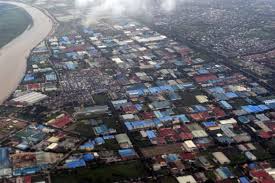
International- standard logistics hub will be built on over 59 acres of land in Hlinethaya Township in Yangon to maintain export quality and reduce production cost
An international level logistics hub will be built on over 59 acres of land in Hlinethaya Township, Yangon, to maintain export quality and reduce production cost, according to the Ministry of Commerce. A memorandum of agreement on the logistics hub project to be jointly implemented by Myanmar Trade Promotion Committee under the minister and HUBS MK Co Ltd was signed on January 24 this year. "For the project, we also have to conduct surveys. We will go according to the process. We will try to finish the project as scheduled," said Khin Maung Lwin, assistance permanent secretary of the ministry. -
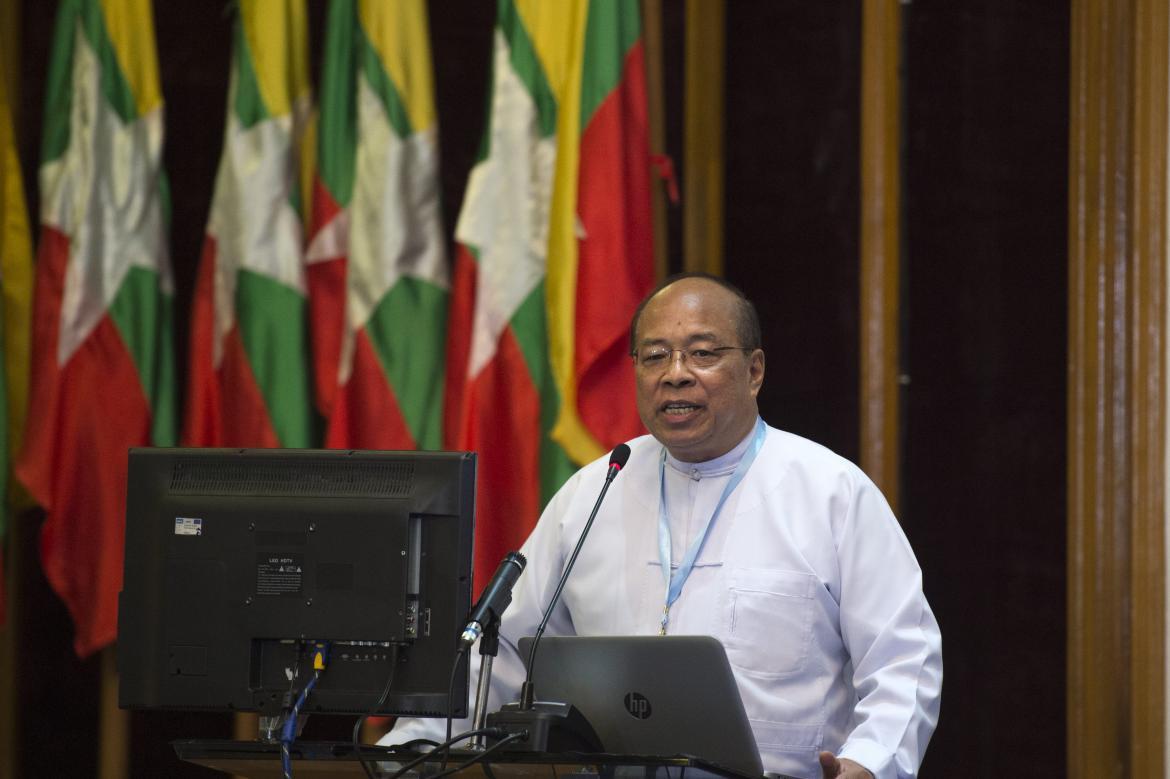
Credentials of new Myanmar Investment Commission Chair, U Thaung Tun, Minister of the Office of the Union Government, is questioned
YANGON —Minister of the Office of the Union Government U Thaung Tun has been appointed chair of the Myanmar Investment Commission, dividing opinion on whether the career diplomat has the necessary economic experience for the role. The June 5 appointment follows the resignation last month of Minister for Planning and Finance U Kyaw Win, who also chaired the investment body. It was expected that his successor at the ministry, U Soe Win, would inherit the role of MIC chair. Instead, the government chose Thaung Tun, who has risen quickly within the government since his appointment in January 2017 as National Security Adviser. Last November, Thaung Tun was named minister for the office of the union government, one of two new ministries created that month to ease the workload of the administration. He became a member of the Myanmar Investment Commission earlier this year. -
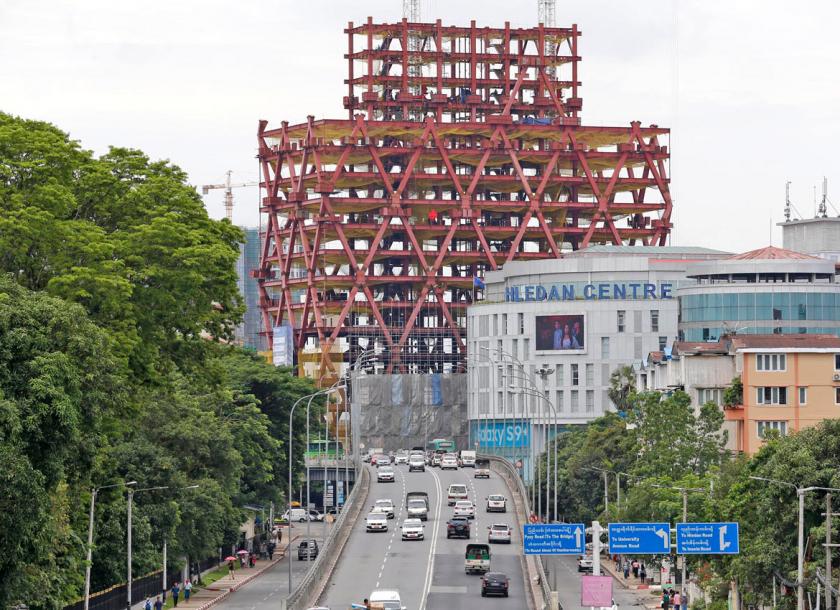
Economic uncertainty and risks could affect business confidence and derail further development despite the strong performance and favorable economic outlook for Myanmar
Despite the strong performance and favourable economic outlook for Myanmar, risks have emerged that could affect business confidence and derail future developments if not addressed, according to the World Bank’s Myanmar Economic Monitor released yesterday. The report said that the country’s economy performed better in 2017-18 amid growing global and domestic uncertainty, partially offsetting slower growth in 2016-17. It is estimated that Myanmar had a broad-based increase in growth of national income as well as lower inflation and improved fiscal and external balances. The domestic currency, kyat, appreciated slightly during 2017-18 on strong exports and foreign direct investment (FDI) flows. Growth of Gross Domestic Product (GDP) is estimated to have increased to 6.4 percent in 2017-18 from 5.9 percent in 2016-17. This growth was driven by a recovery in agriculture and especially crop production, improved manufacturing performance, and strong services growth, in spite of a slight slowdown which is likely caused by tourism and banking sector uncertainties, according to the report. -
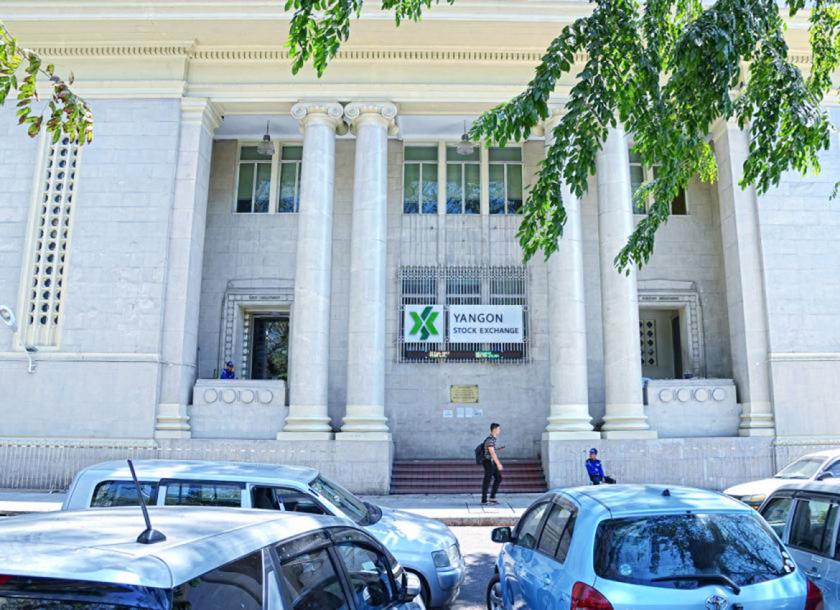
Interest to list on the Yangon Stock Exchange (YSX) has not increased despite the upcoming enforcement of the Myanmar Companies Law on 1 August 2018
Though the new Myanmar Companies Law is less than three months away from being officially enforced, interest to list on the Yangon Stock Exchange (YSX) has not picked up as substantially as expected, said U Thet Tun Oo, senior executive manager of the YSX. The Myanmar Companies Law, which was enacted December 6, 2017, will come into force on August 1. According to that law, foreign investors will be permitted to take stakes of up to 35 percent in Myanmar companies, including in firms listed on the YSX. The new rule had been expected to lift interest among local companies to list on the YSX, enabling them to gain access to foreign funds and knowhow. It would also yield fresh opportunities for their shares to rise in value on the back of heavier trading. Yet, interest to list on the YSX has not been as robust as expected, U Thet Tun Oo told The Myanmar Times.
เกาะติดข่าว
Copyright © 2014 Business Information Center All Rights Reserved.







